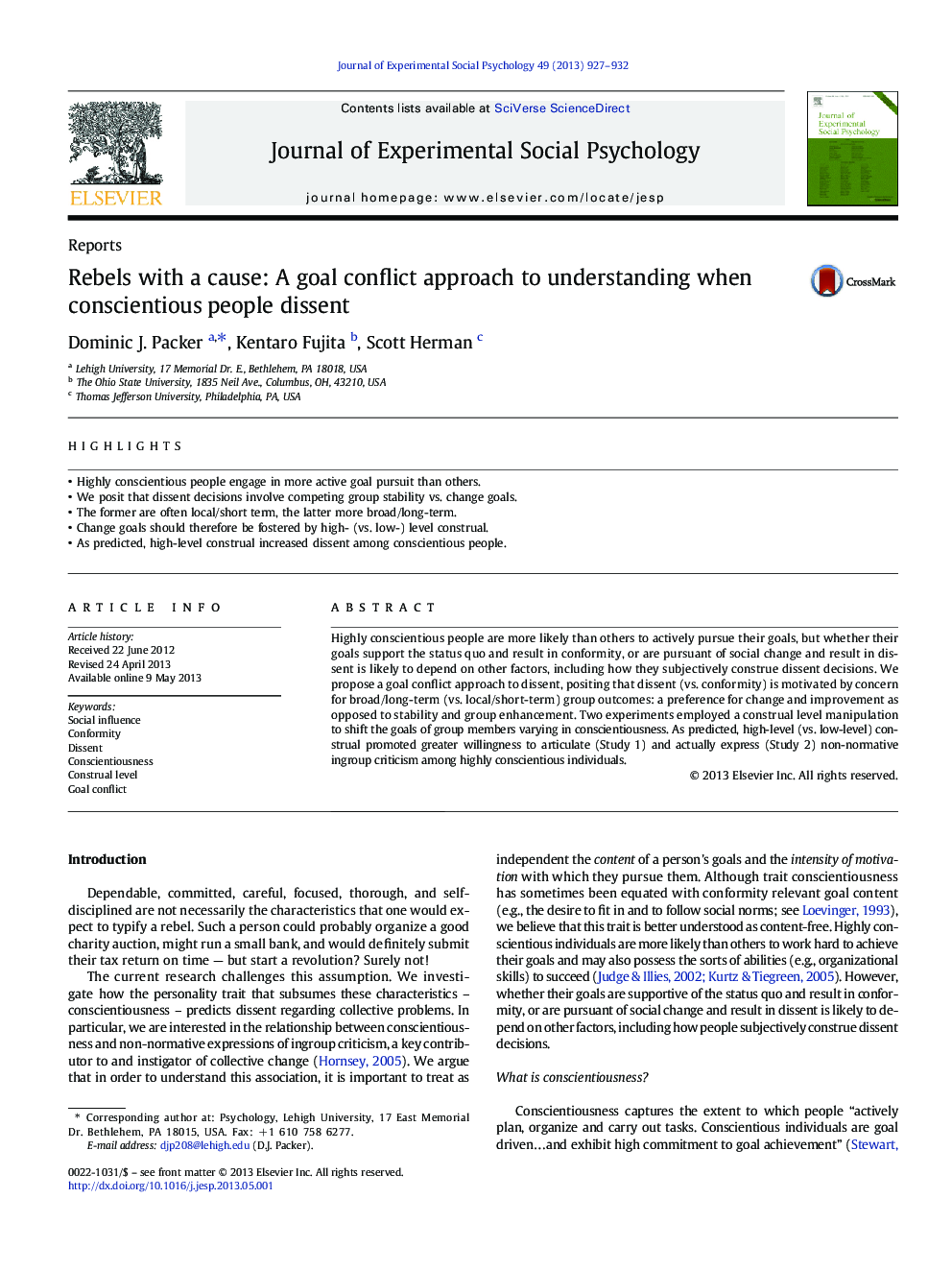| Article ID | Journal | Published Year | Pages | File Type |
|---|---|---|---|---|
| 948025 | Journal of Experimental Social Psychology | 2013 | 6 Pages |
•Highly conscientious people engage in more active goal pursuit than others.•We posit that dissent decisions involve competing group stability vs. change goals.•The former are often local/short term, the latter more broad/long-term.•Change goals should therefore be fostered by high- (vs. low-) level construal.•As predicted, high-level construal increased dissent among conscientious people.
Highly conscientious people are more likely than others to actively pursue their goals, but whether their goals support the status quo and result in conformity, or are pursuant of social change and result in dissent is likely to depend on other factors, including how they subjectively construe dissent decisions. We propose a goal conflict approach to dissent, positing that dissent (vs. conformity) is motivated by concern for broad/long-term (vs. local/short-term) group outcomes: a preference for change and improvement as opposed to stability and group enhancement. Two experiments employed a construal level manipulation to shift the goals of group members varying in conscientiousness. As predicted, high-level (vs. low-level) construal promoted greater willingness to articulate (Study 1) and actually express (Study 2) non-normative ingroup criticism among highly conscientious individuals.
